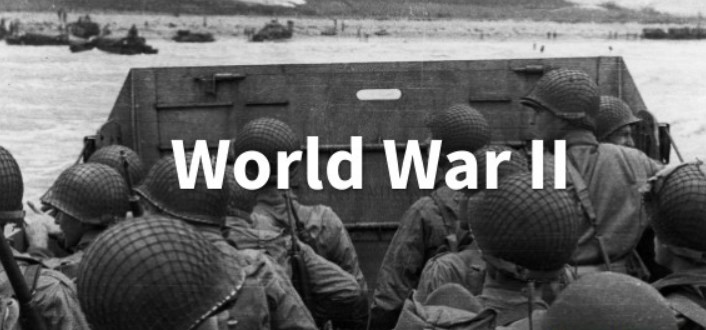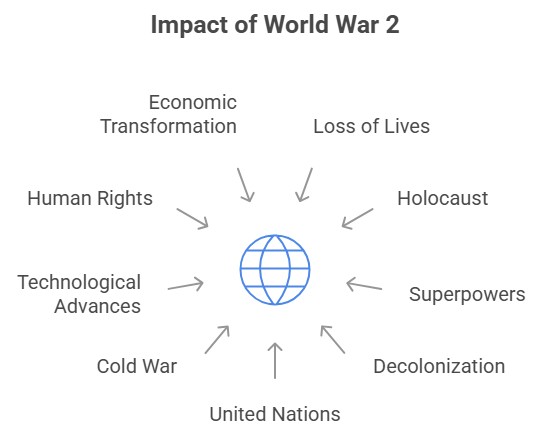Explore World War 2 (1939–1945): causes, key battles, Holocaust, and aftermath. Learn about Allied victory, atomic bombings, rise of superpowers, decolonization, and global impact shaping today’s geopolitics and international order.

World War 2 was a global conflict that took place from 1939 to 1945. It involved major world powers and their alliances, resulting in widespread devastation and significant geopolitical changes. The war began with the German invasion of Poland and ended with the dropping of atomic bombs on Hiroshima and Nagasaki, marking the start of the atomic age. 
|
Keywords from Aaj Ka Quality Enrichment
|
|
Interesting Fact: The Enigma machine, used by the Germans to encrypt their military communications during World War 2, was eventually cracked by the efforts of British codebreakers at Bletchley Park. This breakthrough in codebreaking played a crucial role in Allied intelligence and significantly contributed to their eventual victory. |


World War II resulted in the extension of the Soviet Union’s power to nations of eastern Europe and marked the decisive shift of power in the world away from the states of western Europe and toward the United States and the Soviet Union.


Refine your answer writing skills and elevate your UPSC preparation with personalized support and expert feedback.
Fill out the form to get started with the program or any other enquiries !








Are you dreaming of becoming an IAS officer? Then, IAShub can be your best guide. It is one of the Best IAS Coaching in Delhi. Many students who want to clear the UPSC exam join IAShub for learning. The institute gives both online and offline classes. Their teachers are experienced and helpful. They easily explain every topic. Students also get notes, tests, and tips to do well in the exam.
IAShub is in Delhi and is trusted by many UPSC students. It offers coaching for every part of the UPSC exam – Prelims, Mains, and Interview. The classes are simple and easy to understand. The teachers are experts and guide students in the right way. IAShub is also known for its helpful notes, test series, and answer-writing practice. IAShub is the best coaching in Delhi and also gives UPSC Online Classes. This helps students from any place in India to learn. The online classes are live and also recorded. So, students can watch them anytime. These classes cover the full UPSC syllabus.
Here are some important services provided by IAShub:
The UPSC Civil Services Exam has three parts:
This exam is tough, but with the right guidance, it becomes easy to manage. Students must study smart and stay regular.
IAShub supports students from the beginning to the end. It gives the right books, tests, and notes. The classes are easy to follow, and the teachers are always ready to help. Students get personal doubt sessions too. The test series and answer checking help students learn where they need to do better. Also, free study materials save time and money.
IAShub also guides students during the final stage – the interview. Experts take mock interviews and give useful tips. This full support makes IAShub one of the best IAS coaching in Delhi.